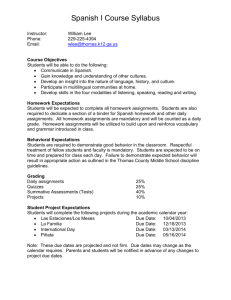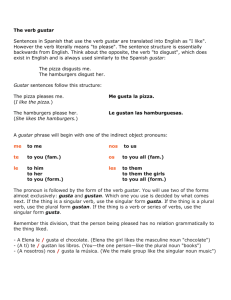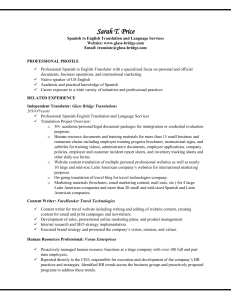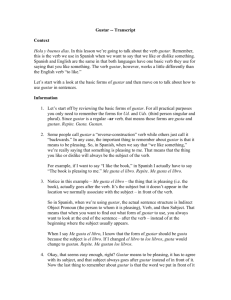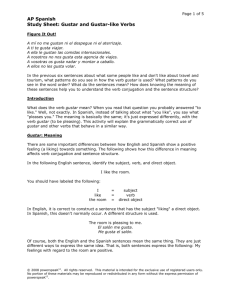The Verb Gustar
advertisement
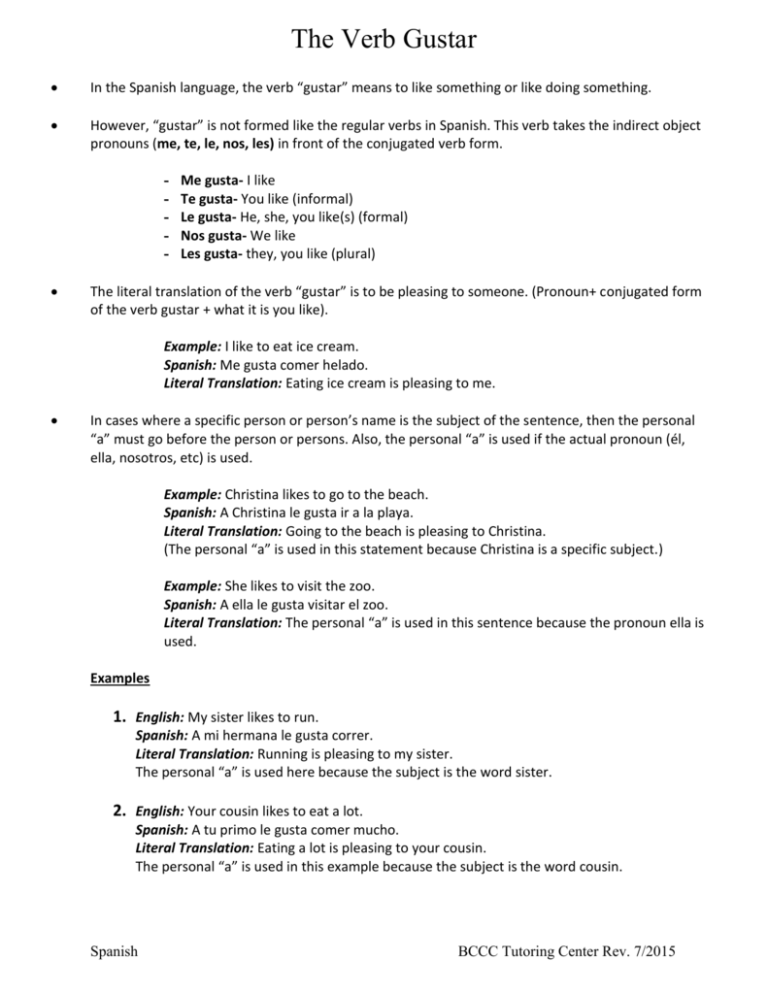
The Verb Gustar In the Spanish language, the verb “gustar” means to like something or like doing something. However, “gustar” is not formed like the regular verbs in Spanish. This verb takes the indirect object pronouns (me, te, le, nos, les) in front of the conjugated verb form. - Me gusta- I like Te gusta- You like (informal) Le gusta- He, she, you like(s) (formal) Nos gusta- We like Les gusta- they, you like (plural) The literal translation of the verb “gustar” is to be pleasing to someone. (Pronoun+ conjugated form of the verb gustar + what it is you like). Example: I like to eat ice cream. Spanish: Me gusta comer helado. Literal Translation: Eating ice cream is pleasing to me. In cases where a specific person or person’s name is the subject of the sentence, then the personal “a” must go before the person or persons. Also, the personal “a” is used if the actual pronoun (él, ella, nosotros, etc) is used. Example: Christina likes to go to the beach. Spanish: A Christina le gusta ir a la playa. Literal Translation: Going to the beach is pleasing to Christina. (The personal “a” is used in this statement because Christina is a specific subject.) Example: She likes to visit the zoo. Spanish: A ella le gusta visitar el zoo. Literal Translation: The personal “a” is used in this sentence because the pronoun ella is used. Examples 1. English: My sister likes to run. Spanish: A mi hermana le gusta correr. Literal Translation: Running is pleasing to my sister. The personal “a” is used here because the subject is the word sister. 2. English: Your cousin likes to eat a lot. Spanish: A tu primo le gusta comer mucho. Literal Translation: Eating a lot is pleasing to your cousin. The personal “a” is used in this example because the subject is the word cousin. Spanish BCCC Tutoring Center Rev. 7/2015 3. English: We like to walk on the beach. Spanish: Nos gusta caminar en la playa. Literal Translation: Walking on the beach is pleasing to us. The personal “a” is not used in this sentence because there is no specific name or names and there is no pronoun coming before the conjugated verb form. 4. English: He likes to listen to music. Spanish: A él le gusta escuchar la música. Literal Translation: Listening to music is pleasing to him. The personal “a” is used in this sentence because the pronoun for the word he (él) is used before the conjugated verb form. 5. English: They like to go to the movies. Spanish: A ellos les gust ir al cine. Literal Translation: Going to the movies is pleasing to them The personal “a” is used in this sentence because the pronoun for the word they (ellos) is used. Spanish BCCC Tutoring Center Rev. 7/2015

